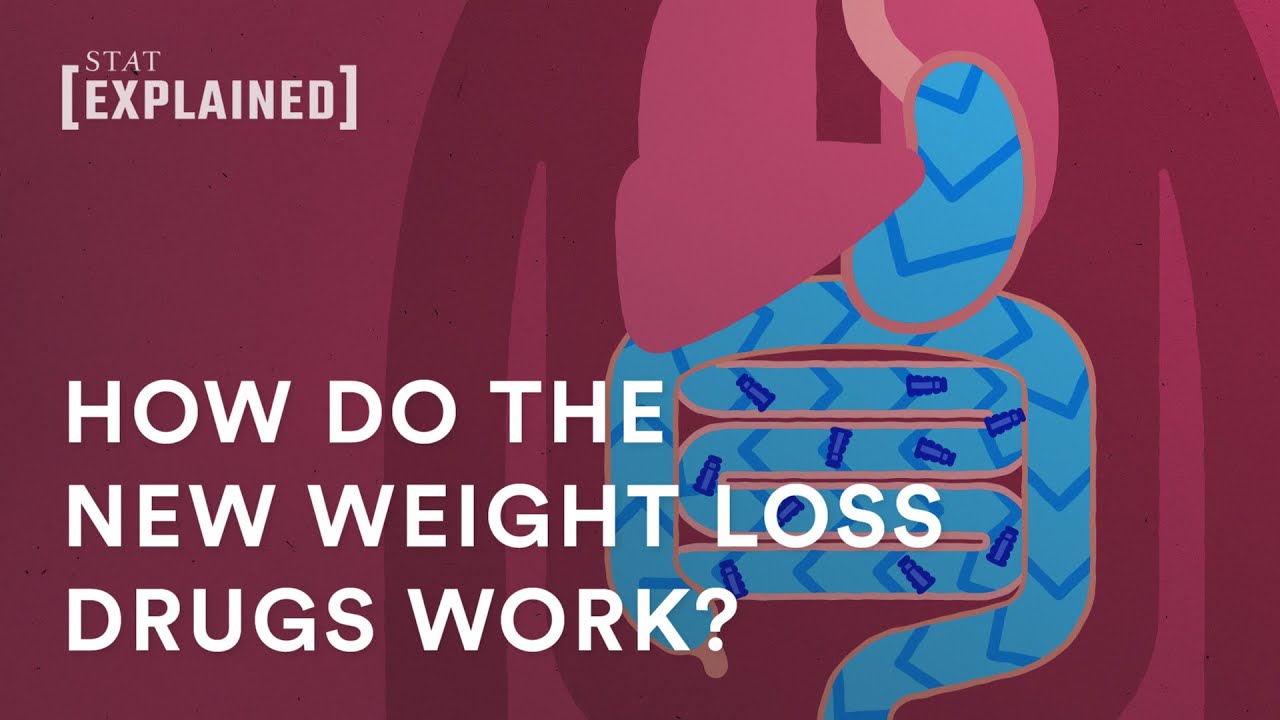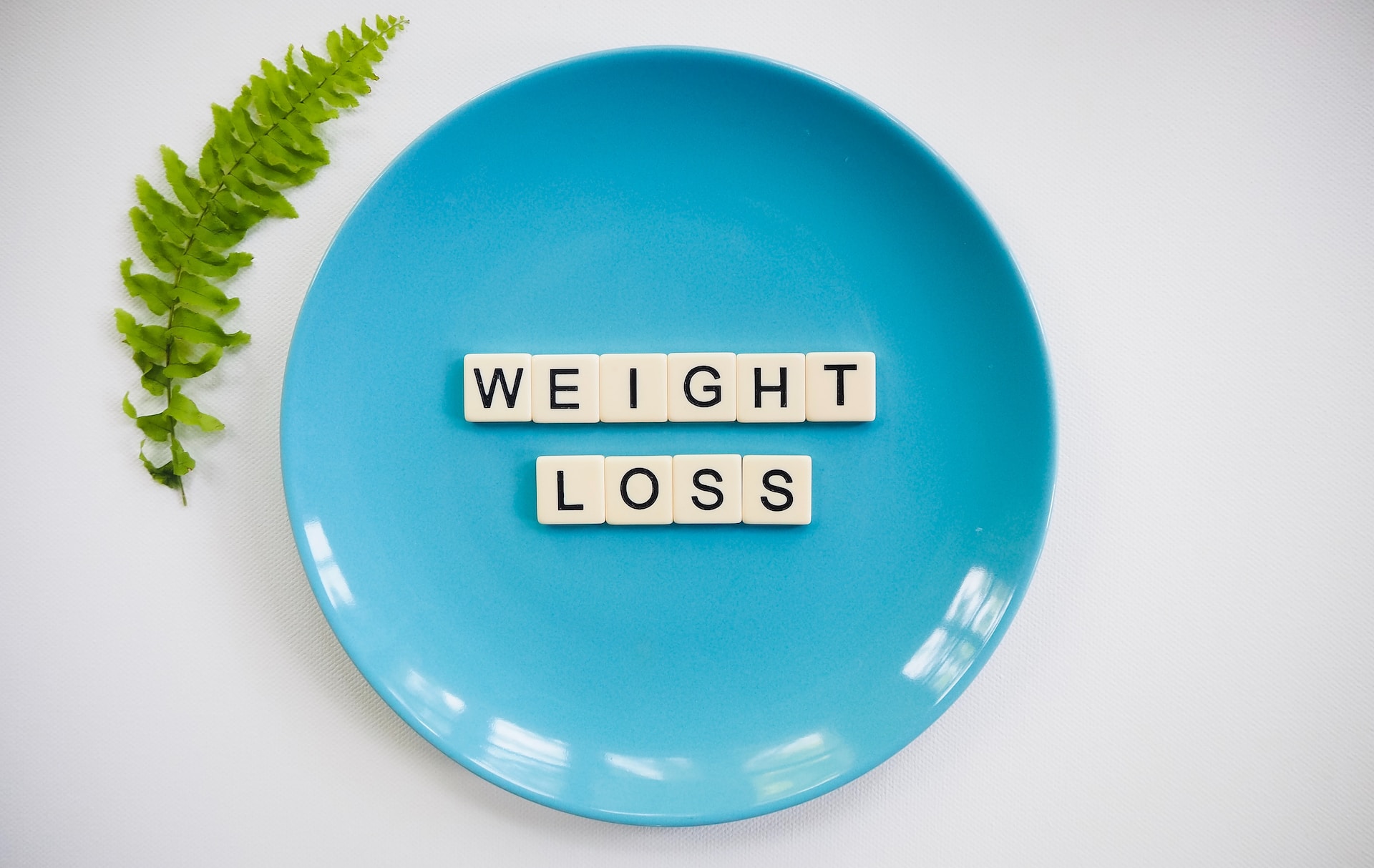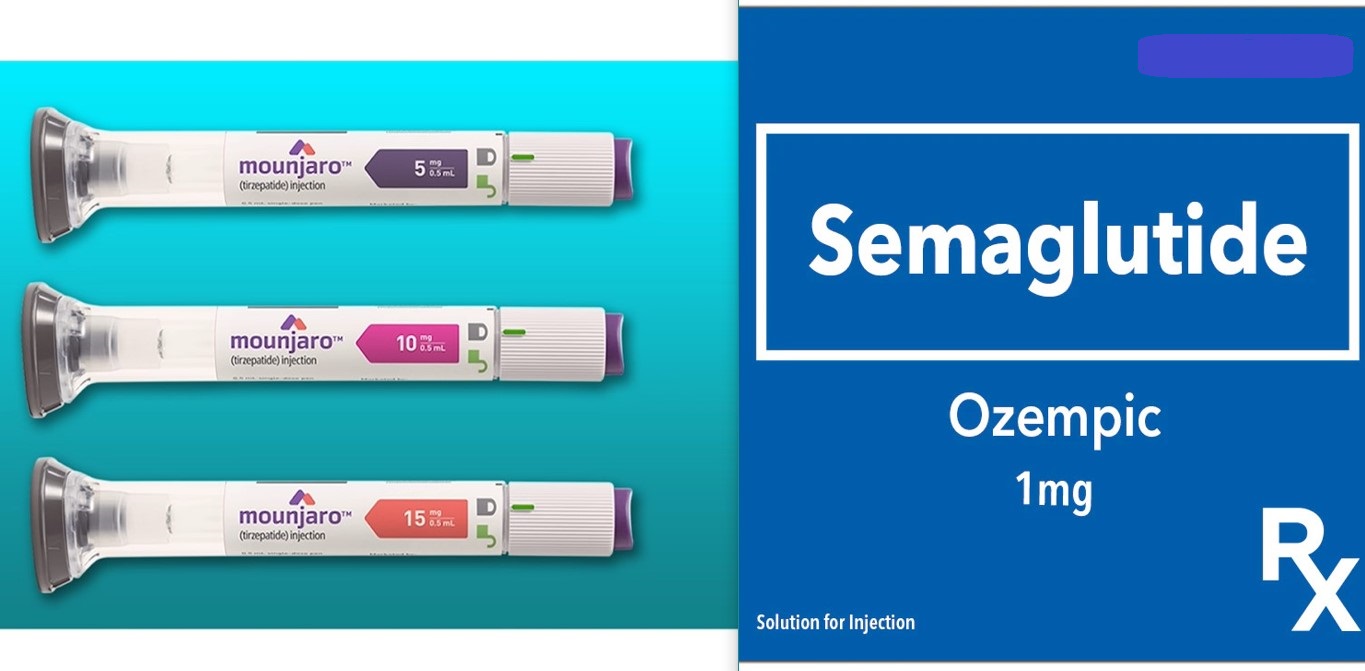Dangers Of New Weight Loss Drugs - How Risky Can They Get?
Whether it’s driven by health concerns, societal pressures, or personal aspirations, the quest for weight loss has led some to explore various avenues, including the use of diet pills. The dangers of new weight loss drugs seem not to be a big concern. However, it should. Lose weight but do so safely.
Author:Katharine TateReviewer:Karan EmeryAug 09, 202322.8K Shares335.5K Views

Regardless of the potential dangers of new weight loss drugs, people take the risk and take them.
In a world that places a significant emphasis on physical appearance and body image, the desire to achieve an ideal weight has become a prevailing goal for many individuals.
These pharmaceutical interventions promise swift results and offer hope to those who struggle with shedding excess pounds.
However, the decision to take weight loss drugs is not without its complexities and risks.
It is crucial to recognize the probable dangers of new weight loss drugs and the informed choices individuals must make to embark on a safe and effective weight loss journey.

How do the new weight loss drugs work?
What Is A Weight Loss Drug?
Let’s first discuss what these drugs are before tackling the dangers of new weight loss drugs.
Weight loss drugs are pharmaceuticals designed to help individuals lose weight by affecting various processes in the body.
These drugs or supplements are also known as:
- anti-obesity medications
- appetite suppressants
- diet pills
- fat burner pills (or simply fat burner)
- fat-burning supplements
They are typically prescribed to people who:
- have difficulty losing weight through diet and exercise alone
- may be at risk of obesity-related health issues
There are different types of weight loss drugs with varying mechanisms of action, but they generally work in one or more of the following ways:
a. Appetite suppression
Some weight loss drugs work by reducing a person’s appetite, making them feel less hungry and helping them consume fewer calories.
These medications often target certain neurotransmitters in the brain that regulate hunger and satiety.
Neurotransmitters, by the way, are chemical messengers in the brain and nervous system that transmit signals between nerve cells.
b. Fat absorption inhibition
Certain weight loss drugs interfere with the absorption of dietary fat in the digestive system.
They inhibit enzymes responsible for breaking down fats, which leads to a reduced calorie intake from fat.
c. Metabolism enhancement
Some drugs can increase the body’s metabolic rate, meaning it burns more calories at rest.
By raising the metabolism, the body uses more energy, and weight loss may occur as a result.
d. Hormonal regulation
Certain medications target hormones involved in weight regulation (e.g., insulin), which affects blood sugar levels and fat storage.
By modifying hormone levels, these drugs can influence body weight.
e. Thermogenesis stimulation
Thermogenesis - from the Greek words thermos(hot/heat) and genesis(formation/creation) - is the process of heat production in the body, which burns calories.
Some weight loss drugs may stimulate thermogenesis, leading to increased calorie expenditure.
Nevertheless, weight loss drugs are not a magic solution for weight loss.
They are typically prescribed in conjunction with lifestyle changes, such as:
- a balanced diet
- regular physical activity (which can include exercise)
To avoid the dangers of new weight loss drugs, as with any medical treatment, it is essential to follow the prescribed dosage and advice of healthcare professionals.

Weight Loss Pills That Actually Work
The effectiveness of these medications varies from person to person. In addition, they may come with potential side effects and risks.
That’s why people should be reminded about the dangers of new weight loss drugs.
Before prescribing weight loss drugs to anyone, healthcare professionals carefully assess the individual’s:
- medical history
- current health status
- other factors (e.g., allergies)
They are usually prescribed for individuals with a body mass index (BMI) above a certain threshold or those who have obesity-related health conditions that could benefit from weight loss.
In a July 2023 article he wrote for Sports Illustrated, Aaron L. Gravely, M.D., cited bodybuilders and athletes as some of the people who typically use weight loss drugs.
Apparently, they have a certain weight to achieve and maintain.
Dr. Gravely, who is also a medical researcher, also hinted about the dangers of new weight loss drugs.
Below are some of the weight loss pills that actually work and are available in 2023, according to him:
| Brand & Price (per capsule) | Description |
| Legion Athletics Phoenix ($1.67) | “Best Energizing Fat Burner” & “Best Fat Burner + Appetite Suppressant” |
| PhenQ ($2.33) | “Best Overall Fat Burner” & “Best Fat Burner for Belly Fat” |
| PhenQ PM ($2.17) | “Best Nighttime Fat Burner” |
| Swolverine Therm ($0.39) | “Best Thermogenic Fat Burner” |
| Transparent Labs Fat Burner ($1.80 for 2 capsules) | “Best Fat Burner for Men” |
| Transparent Labs Fat Burner Stim-Free ($0.92) | “Best Caffeine-Free Fat Burner” |
| Transparent Labs Lean ($1.67) | “Best Pre-Workout Fat Burner” |
Important reminders by Dr. Gravely regarding these effective weight loss drugs mentioned above:
- PhenQ and Legion Athletics Phoenix should not be taken by those who are “sensitive to caffeine.”
- Legion Athletics Phoenix is not also recommended for people who are not physically active. This one is suitable for those who exercise/workout regularly.
- PhenQ PM, Transparent Labs Lean, and Swolverine Therm should not be taken by people with kidney problems.
- Transparent Labs Fat Burner comes in big pills. Several reviewers said the pills can be hard to swallow.
- Transparent Labs Fat Burner Stim-Free can cause abdominal pain or upset stomach. Those with inflammatory bowel disease (IBD) or irritable bowel syndrome (IBS) should avoid this drug.
Drugs Approved For Weight Loss
The likely dangers of new weight loss drugs can be determined from the start if such drugs don't have approval from the U.S. Food and Drug Administration (FDA).
In a Healthline article (updated in July 2023) by registered dietitian Rachael Ajmera and nutrition researcher Kris Gunnars, the following are FDA-approved prescription weight loss pills:
| Weight Loss Medication | Brand Name |
| phentermine | Adipex-P; Ionamin; Lomaira; Sentis |
| bupropion/naltrexone | Contrave |
| setmelanotide | Imcivree |
| phentermine/topiramate | Qsymia |
| orlistat | Xenical |
The two health writers cautioned that all these weight loss drugs have side effects, two of which are constipation and nausea. Plus, they warned future users that:
“„These medications should be combined with a balanced weight loss diet, as alone, they are not likely a helpful long-term solution for obesity and may lead to weight regain over time.- Rachael Ajmera, M.S., R.D. and Kris Gunnars
As for over-the-counter (OTC) weight loss drugs, here are three brands that get the FDA approval:
- Alli (the OTC version of orlistat)
- Hydroxycut
- Meratrim
Dangers Of New Weight Loss Drug
Taking weight loss drugs can potentially come with various dangers and risks, which is why it’s vital to consult with a healthcare professional before using any medication.
Some of the potential dangers and risks associated with weight loss drugs include:
a. Side effects
Weight loss drugs can cause a range of side effects, which may vary depending on the specific medication.
Common side effects may include:
| diarrhea | headaches |
| constipation | dizziness |
| fatigue | nausea |
b. Cardiovascular issues
Certain weight loss drugs have been linked to an increased risk of cardiovascular problems, such as:
- high blood pressure
- heart palpitations
- heart attacks
These are just some of the dangers of new weight loss drugs as well as those diet pills that have long been sold in the market.
c. Psychological effects
Some weight loss drugs can lead to:
- mood changes
- anxiety
- depression
- other mental health issues
These drugs may also affect sleep patterns and appetite regulation.
d. Dependency and addiction
Some weight loss medications can be habit-forming, leading to dependency or addiction, particularly in cases of misuse or abuse.
e. Interactions with other medications
Weight loss drugs can interact with other medications, which can lead to adverse reactions or reduced efficacy. These medications generally include:
- prescription drugs
- over-the-counter medications
- herbal supplements
f. Gastrointestinal issues
Weight loss drugs can cause gastrointestinal problems, such as:
- abdominal pain
- bloating
- diarrhea
g. Nutrient deficiencies
Some weight loss drugs may interfere with the body’s ability to absorb essential nutrients, leading to deficiencies in vitamins and minerals.
h. Increased heart rate and blood pressure
Certain weight loss drugs can stimulate the central nervous system, leading to an increase in heart rate and blood pressure.
Such instances may be dangerous for individuals with pre-existing heart conditions.
i. Allergic reactions
People can experience allergic reactions to weight loss drugs, which can range from mild skin rashes to severe anaphylaxis.
j. Liver and kidney damage
Some weight loss drugs have been associated with liver or kidney damage, especially with prolonged or excessive use.
k. Pregnancy complications
Weight loss drugs can pose risks during pregnancy.
Therefore, pregnant or breastfeeding women should avoid taking them due to potential harm to the fetus or newborn.
l. Ineffectiveness
Weight loss drugs may not work as expected for everyone.
Some people might not experience significant weight loss despite using these medications.
In the remaining sections of this article, you’ll learn more about the dangers of new weight loss drugs, particularly three ones that are recently popular.
Weight Loss Drug Mounjaro
Eli Lilly and Company, an Indiana-based pharmaceutical company, developed the FDA-approved tirzepatide (brand name: Mounjaro) for the treatment of type 2 diabetes.
Tirzepatide can enhance the regulation of blood sugar levels by:
- increasing the secretion of insulin (it helps control the level of glucose or sugar in our body)
- decreasing the secretion of glucagon (it regulates the body’s blood sugar levels)
- improving the sense of satiety (fullness)
As Mounjaro does those three things, it can lead to better control of eating behaviors and weight management.
That’s why Mounjaro, according to an updated July 2023 Forbes article, is being prescribed as an off-label weight loss drug. However, it has no FDA approval in that capacity.
When a healthcare professional prescribes a medication off-label, it means that the medication is being used in a way that goes beyond its approved indications or dosages.
Still, despite the dangers of new weight loss drugs, several people give it a try because several studies validate its effectiveness to make people lose weight significantly.
Mounjaro Side Effects
Intellihealth’s Chief Medical Officer Leon I. Igel, M.D., told Forbes about the following side effects of Mounjaro:
| constipation | reduced appetite |
| diarrhea | stomach pain |
| indigestion | vomiting |
| nausea | -- |
As for the serious side effects, Dr. Igel mentioned these:
| General | Signs/Symptoms |
| changes in vision | blurred or loss of vision |
| gallbladder problems | upper abdominal pain, yellowish skin |
| kidney failure | difficulty in catching one’s breath, muscle cramps, rashes, swelling (ankles, feet) |
| low blood sugar (hypoglycemia) | blurred vision, drowsiness, increased heart rate, light-headedness, slurred speech, weakness |
| serious allergic reactions | difficulty breathing or swallowing, fainting, very fast heart rate, swelling (face, lips, tongue) |
| swollen pancreas (pancreatitis) | terrible abdominal pain with or without vomiting |
| severe stomach problems | bloating, cramps, vomiting |
Weight Loss Drug Ozempic
Like tirzepatide (Mounjaro), semaglutide is also an FDA-approved medication formulated for type 2 diabetes.
The brand names of semaglutide (dosage: injected once a week) are:
- Ozempic
- Rybelsus
- Wegovy
According to Forbes, people with weight loss concerns like to get their hands on Ozempic regardless of the dangers of new weight loss drugs.
That’s because Ozempic became a trending online topic as numerous people affirm its effectiveness on various social media.
But how authentic are those claims?
Ozempic user Joanie Knight shared her experience - and regrets - to CNN:
“„I wish I never touched it. This medicine made my life hell. So much hell. It has cost me money . . . a lot of stress; it cost me days and nights and trips with my family . . . it’s not worth it.- Joanie Knight
The 37-year-old Knight, who hails from Louisiana, also underscored how expensive Ozempic can get.
Per an article published in March 2023 by New York-based healthcare company Ro, a month’s supply of Ozempic costs approximately $892.06 in the U.S. if not covered by insurance.
Ozempic Side Effects
The dangers of new weight loss drugs become more evident with Ozempic.
CNN reportedthat taking Ozempic caused Joanie Knight to be diagnosed with a kind of stomach problem called gastroparesis, which could be mild, moderate, or severe.
In Knight’s case, taking Ozempic made her suffer from severe gastroparesis.
When people eat a meal, as explained in the CNN report, some foods are left in the stomach after four hours. The normal amount left should only be less than 10 percent.
In the case of a severe gastroparesis, more than 35 percent are left in the stomach. That explains why Knight would throw up a lot.
The results of the clinical trials conducted on Wegovy by Danish pharmaceutical company Novo Nordisk, per CNN, showed these alarming data:
- 44 percent of those who take it experience nausea
- 1 in every 4 people experiences vomiting
In separate clinical trials by Novo Nordisk for Ozempic, nausea (1 in 5 people) and vomiting (1 in 10 people) are common complaints of those taking it.
One teacher from Toronto, Emily Wright (she took Ozempic before), told CNN that her vomiting happened daily.
It compelled Wright to take a long leave from work. In addition, she was hospitalized due to dehydration. The day-to-day vomiting made her dehydrated.
The dangers of new weight loss drug Mounjaro (see the two tables for side effects) are the same (in terms of side effects) as those for Ozempic and Wegovy.

WeGovy, Ozempic or Mounjaro? How a new wave of weight loss drugs could transform the diet industry
People Also Ask
What Diet Pills Are Banned By The FDA?
From its website, some of the weight loss products banned by the FDA include:
| Name | Date of Public Notification |
| Phentamene XT | May 2023 |
| NORF 20 | May 2023 |
| Alfia Weight Loss Capsules | February 2023 |
| Lipopastilla + Gold Max | July 2022 |
| Dr. Reade Slim Sense | July 2022 |
| Hydro Pinapple [sic] Burn | July 2021 |
| Cholestene | July 2021 |
| Genesis Ultra Slim Gold | July 2021 |
| 365 SKINNY High Intensity | June 2020 |
| Miss Slim | June 2020 |
What’s The Fastest Way To Lose Weight Without Pills?
The dangers of new weight loss drugs should convince people not to heavily rely on it.
Below are some of the ways - all backed by science, according to Medical News Today - to lose weight without taking diet pills:
- Monitor what you eat/your diet.
- Eat a lot of fiber-rich food.
- Lessen intake of foods rich in refined carbohydrates (carbs) and sugar.
- Exercise regularly.
- Try intermittent fasting.
How To Lose Belly Fat Without Pills?
Belly fat seems to be so stubborn as it is tough to make it disappear.
Instead of facing the dangers of new weight loss drug, give these tips from Johns Hopkins Medicine a try:
- Avoid sedentary living. Live an active lifestyle.
- Exercise. Workout if you can. Lift weights.
- Stay away from processed foods.
- Limit your consumption of foods high in carbs and sugar.
Final Thoughts
Perhaps people desire to lose weight because of the strong allure to look good and be healthy. Those two reasons push them to somehow disregard dangers of new weight loss drugs.
Nevertheless, always remember that each weight loss drug has its unique set of risks, and some may be riskier than others.
For those who still want to take the risk, be prepared for the possible consequences.
Sooner or later, the seemingly inevitable dangers of new weight loss drugs will catch up on you.

Katharine Tate
Author

Karan Emery
Reviewer
Latest Articles
Popular Articles



